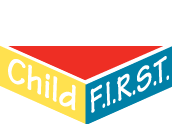Child FIRST – Focus on Innovation and Redesign in Systems and Treatment
The links below provide access to a variety of resources intended to assist with screening and assessment of youth. Their availability is intended to help those working in healthcare, behavioral healthcare, and education to advance the mission of improving the lives of youth and families. Please be mindful of the terms guiding their appropriate use.
The instruments below and their derivative works (inclusive of translations) are copyrighted by the developers. They are available for download and use through this resource page at no cost to the user, but such use does not imply a perpetual free license to any individual or institution. Any download or use of these instruments implies that the user has read and agreed to the terms of use. Commercial distribution of these instruments in any form by a third party is prohibited, and this web page is the only official distribution source (users are encouraged to link to this page rather than distribute copies or derivatives internally, which could introduce inaccuracies). These instruments are available for research and educational purposes, and their professional use for any particular case is the responsibility of the user, at the user’s own risk. Please see user’s guides for specific terms of use for each instrument.
My Thoughts about Therapy (MTT)
My Thoughts about Therapy (MTT) is a 35-item questionnaire with five 7-item subscales that represent the multidimensional REACH framework for characterizing treatment engagement (Becker et al., 2018; Chorpita & Becker, 2022). We encourage its use for both research and clinical purposes, but please read the latest user’s guide for terms.
MTT User’s Guide (English and Spanish Versions)![]() [updated on July 29, 2022]
[updated on July 29, 2022]
MTT Single User Scoring Program V20220802 (.xls) ![]()
MTT Brukermanual (Norwegian User’s Guide)![]() [updated on June 9, 2025; translations led by Kristianne Stigsdatter Ovenstad]
[updated on June 9, 2025; translations led by Kristianne Stigsdatter Ovenstad]
Penn State Worry Questionnaire for Children
Revised Children’s Anxiety and Depression Scale (click here to visit official site)
